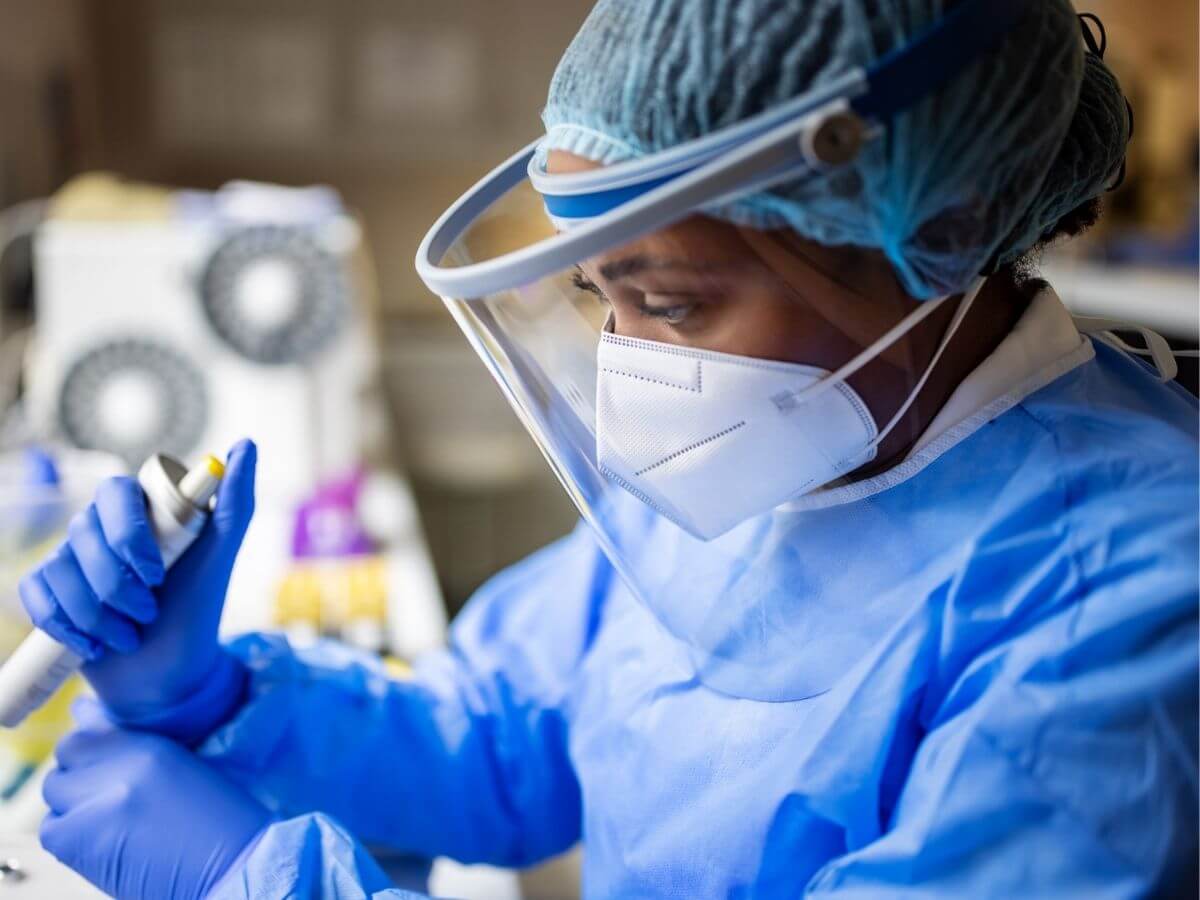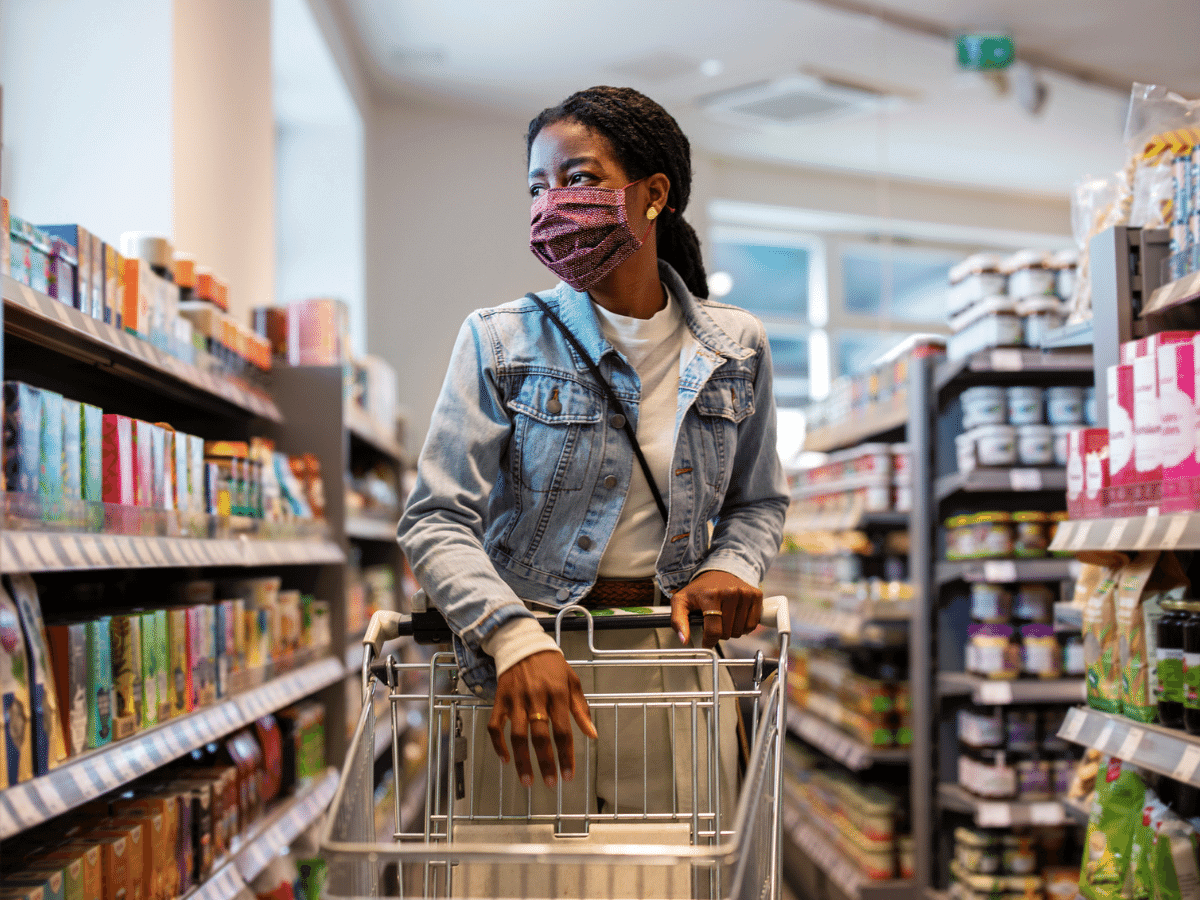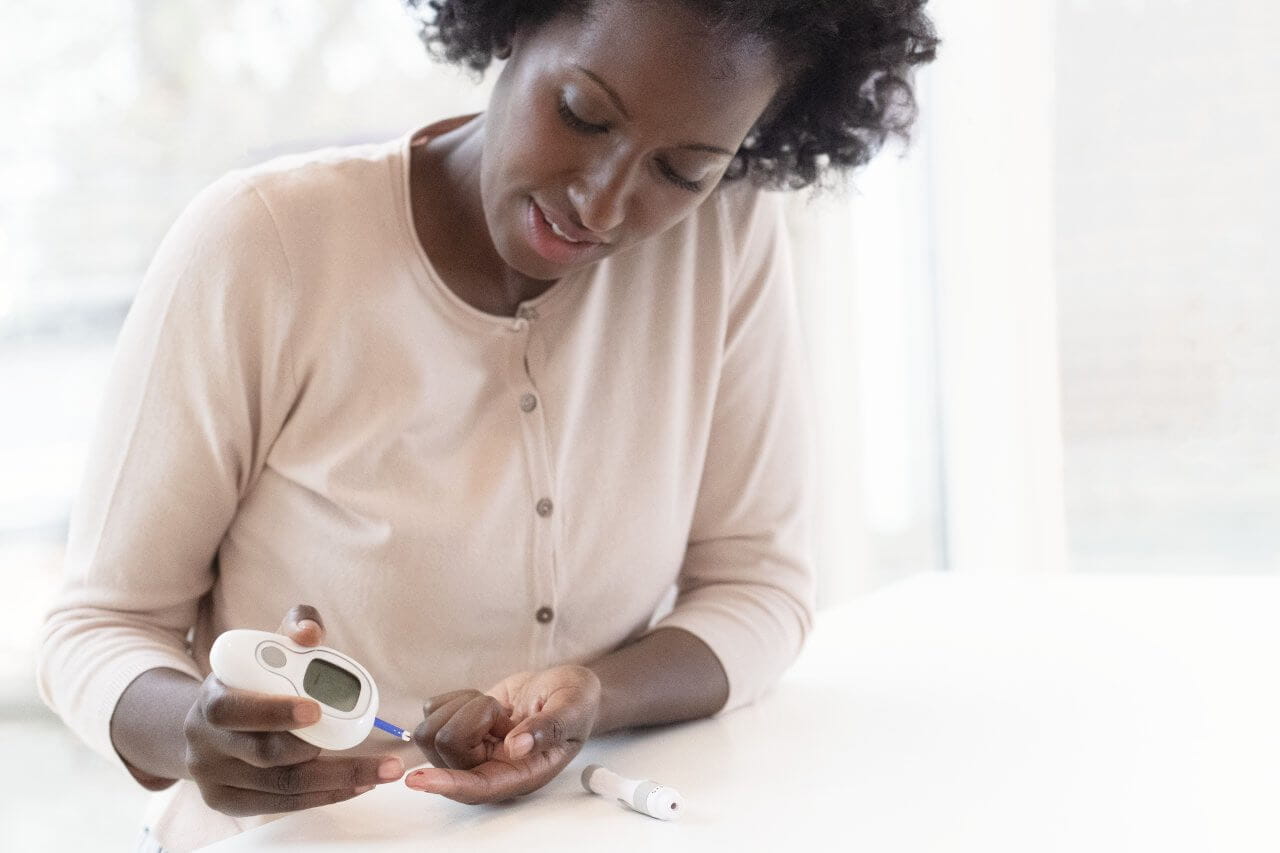Everything You Need to Know About Virus Mutation

One of the biggest challenges when it comes to controlling the spread of illnesses caused by viruses like COVID-19 is that viruses can mutate or change over time.
The term “mutation” may be alarming, but it’s a normal process in viruses (and other types of cells, too) — and COVID-19 is no different. Still, it’s important to understand how and why viruses mutate because we all play a role in helping to reduce the opportunities for mutation.
How Do Viruses Mutate?
In the simplest terms, a mutation is produced when an error occurs in the normal duplication process that a virus goes through to make more of itself.
Viruses are essentially genetic material (DNA or RNA) packaged inside a protective protein shell. When a virus enters your body (typically through your nose or mouth), it gets into your cells, and its genetic material serves as the blueprint for making copies of itself.
New virus particles then move through the body, infecting additional cells, and that process continues until your immune system figures out how to stop it. (Side note: A vaccine helps your immune system learn how to neutralize a virus without you having to get sick.) If the blueprint isn’t followed correctly, a mutation — called a variant — is produced.
Often, mutations are so minor that they don’t cause any significant change in how the virus works. But in some instances, a mutation can modify a virus particle in a way that helps it get into cells more effectively, which makes it easier for one infected person to infect another.
Never Miss a Beat
Get the health and wellness news that matters most delivered straight to your inbox. Subscribe to our free email newsletter to stay up-to-date on the latest news and more.
Why Is COVID Mutating So Much?
COVID-19 isn’t necessarily mutating more than any other virus. But because it can result in serious illness or death and is highly contagious, it’s getting a great deal of attention from researchers, doctors, and the news media. So, we’re all more aware of the mutations than we would be with a less-dangerous virus.
That being said, the longer a virus is in circulation in a population, the more opportunities it has to mutate. For that reason, it’s very important that people get vaccinated and use the disease-prevention practices we’ve all become accustomed to—masking, physical distancing, handwashing, etc.—to help stop the virus.
Do Viruses Weaken When They Mutate?
It’s not uncommon for viruses to get more transmissible and produce less-serious illnesses as they mutate.
However, it’s important to be aware that viral mutation is a random process, and it can result in a variant that’s more harmful than the original version. Again, this is one of the reasons that taking action to stop the spread of COVID-19 is so important. Each person who contracts the virus becomes a “reservoir” in which the virus has time to mutate.
How Many Times Can a Virus Mutate Before It Dies?
The concept of a virus “dying” isn’t accurate since they aren’t living creatures. As for how long a virus can remain in circulation within a population, there’s no way to know for sure. If a virus is allowed to keep infecting people and mutating within their bodies, it could, in theory, stay active in a population indefinitely.
When Will COVID Stop Mutating?
Because mutation is a natural process, it’s safe to say that the virus that causes COVID-19 probably will never stop mutating. Fortunately, the vaccines that have been developed are highly effective at preventing people from contracting the illness, or if they do get it, protecting them from getting seriously ill. That means the virus has less opportunity to mutate.
You can do your part to help stop COVID-19 by getting vaccinated or receiving a booster. Make a vaccination appointment with Baptist Health.
Next Steps and Useful Resources
Make a Vaccine Appointment
Start Your COVID-19 Test Online
What Is Omicron? Understanding the Latest COVID-19 Variant.
COVID-19 Vaccine Booster Doses and Third Doses Explained



